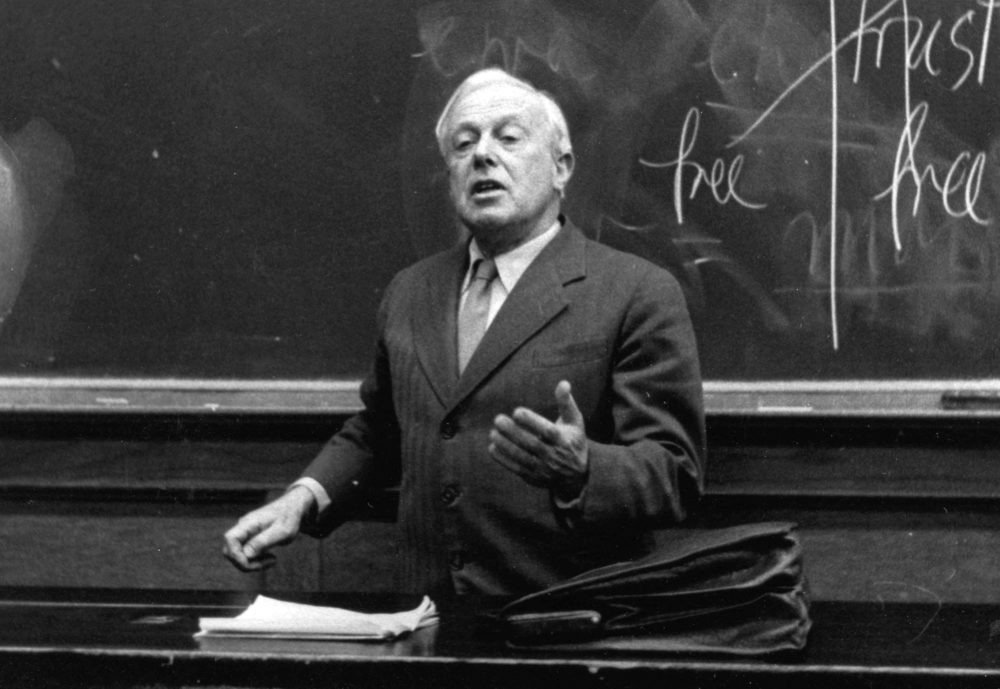Volume 33: Fashions Of Atheism (1968)
One 1-hour lecture.
Of living processes, you can only speak by participation. And of dead things, you can speak by reading books. It’s very different…
The modern fashions in the last hundred years have all consisted in this one-and-the-same attempt to say that man is outside that which he learns, which he knows, which he judges, which he describes, which he discovers; and thereby saying that man could step outside his own life, and speak of life as though it wasn’t his [own]…
Living processes can only be known or understood by those who practice, who are alive, who are involved, who are breathing with these processes, because we only know of their existence, thanks to our quality of breathing, acting, reacting, responding. There is no other way.
—March 1968

Rosenstock-Huessy examines atheism in the larger context of religion in general, rather than focusing on it as a separate phenomenon. He opposes it to religion capable of regeneration, which must honor living social processes. Atheism by contrast is a religion that attempts to address events objectively, which makes it anti-human; there is no way to understand human experience without being a participant in its processes.
